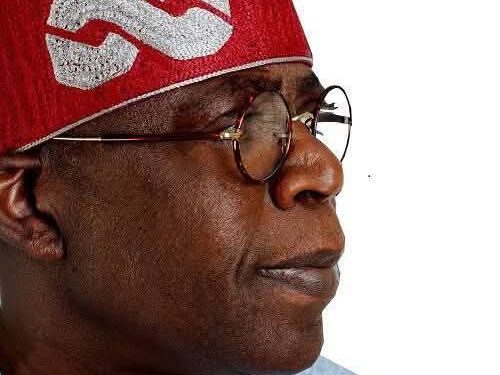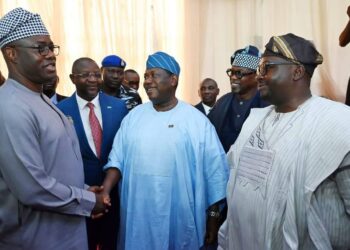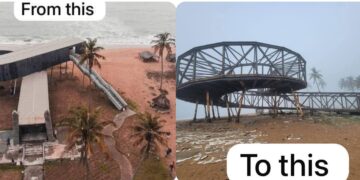
by The Merit Newspaper Editorial Board
Thursday, May 29, 2025
Today marks exactly two years since President Bola Ahmed Tinubu was sworn in as Nigeria’s 16th president, following his victory in the 2023 general elections under the platform of the All Progressives Congress (APC). As the nation stands at the midway point of his constitutionally permitted four-year term, it is an appropriate time to take stock—objectively—of the successes, shortcomings, and signals for the future.
President Tinubu assumed office amid one of the most turbulent periods in Nigeria’s recent economic and political history. He inherited a country battered by the COVID-19 pandemic’s economic aftershocks, mounting public debt, widespread insecurity, and a population increasingly disillusioned with the political elite. Expectations were high, especially as Tinubu—a veteran politician and former governor of Lagos State—was hailed by his supporters as a master strategist capable of resetting Nigeria’s socio-economic trajectory.
Economic Reforms: Courage and Controversy
One of Tinubu’s earliest and most consequential policy decisions was the removal of the fuel subsidy. On May 29, 2023, just hours after taking the oath of office, Tinubu declared, “Subsidy is gone.” This bold move signaled a break from decades of government spending on petroleum subsidies, which many economists argued were unsustainable and riddled with corruption.
In theory, the subsidy removal was designed to redirect funds toward infrastructure, education, and healthcare. In practice, however, it triggered a wave of inflationary pressure. The price of petrol surged overnight, leading to increases in transportation costs, food prices, and general cost of living. While the administration rolled out some palliative measures and introduced conditional cash transfers, the implementation has been erratic and insufficient to cushion the poor and vulnerable.
READ ALSO:ECOWAS at 50: Tinubu Reenacts History, Flags Off Trillion-Naira Projects Amid Economic Crisis
The introduction of a unified exchange rate policy—ending the multiple exchange rate windows—was another ambitious economic reform. It brought some initial optimism among investors and development partners. However, the naira’s depreciation led to further inflation, which peaked at 34.7% in early 2025, according to the National Bureau of Statistics (NBS). The Central Bank of Nigeria (CBN), under the Tinubu-appointed Governor Olayemi Cardoso, has tried to stabilize the financial sector, but confidence remains fragile.
Infrastructure and Industrial Initiatives
One bright spot of the administration has been in the infrastructure and manufacturing sectors. The resumption of operations at the long-awaited Dangote Refinery in early 2025—albeit a private sector initiative—has been cited as a landmark in Nigeria’s quest for energy independence. The Tinubu administration facilitated regulatory approvals and provided key incentives, which accelerated the project’s launch.
Road construction, particularly under the Renewed Hope Infrastructure Agenda, has also seen progress, with significant portions of the Lagos-Ibadan Expressway and Abuja-Kaduna-Kano Road nearing completion. The administration has likewise invested in port modernization and continues to push the Nigeria-Morocco Gas Pipeline project.
READ ALSO:Lagos Unveils Ambitious Energy Roadmap, Eyes Universal Access and Local Manufacturing
Yet, critics argue that much of this progress rides on projects inherited from previous administrations. The administration’s ability to initiate and complete its own legacy infrastructure projects in the next two years will be a more definitive measure of success.
Insecurity and National Cohesion
Security remains Nigeria’s most stubborn and heartbreaking challenge. While some gains have been recorded in the fight against banditry and insurgency in the North-East, the security situation in the North-West and North-Central remains precarious. Incidents of mass abductions, killings, and attacks on communities persist. The police and military remain overstretched, under-equipped, and often poorly motivated.
The President has restructured the security leadership and launched the “Safe Nigeria Project,” a multi-agency security coordination strategy, but results are still uneven. The continued clashes between herders and farmers in the Middle Belt, and rising separatist agitations in the South-East, point to deeper structural and governance issues that go beyond military solutions.
Governance, Accountability, and Public Perception
On anti-corruption, the Tinubu administration has had a lukewarm record. While there have been some arrests and investigations, including of public officials and former governors, there has been no major conviction or sustained systemic reform to increase transparency. The administration has faced criticism for perceived selective prosecution and shielding of political allies.
More worryingly, allegations of suppression of dissent, clampdown on protests, and curtailment of press freedoms have emerged. Instances such as the crackdown on protesters during the economic hardship in early 2024 raised concerns about the administration’s tolerance for democratic expression.
READ ALSO:‘We Have Defeated the Hoarders!’ – Tinubu Boasts as Food Prices Begin to Drop
Yet, Tinubu’s government has been praised for digitizing parts of the public service and initiating talks on restructuring Nigeria’s federal system. His consistent engagement with international stakeholders—resulting in foreign direct investment pledges from Germany, UAE, and India—reflects a president actively seeking global partnerships.
The Verdict: A Mixed Record, A Critical Crossroads
As President Tinubu enters the second half of his term, the stakes are even higher. While his government has shown courage in tackling difficult economic reforms, the outcomes have disproportionately affected the poor and middle class. The administration must now shift from policy proclamations to practical, people-centered implementation.
The merit of any administration lies not in the boldness of its pronouncements, but in the measurable improvements in the lives of its citizens. With unemployment still high, inflation biting hard, and insecurity unresolved, Nigerians are asking not just for hope, but for visible change.
President Tinubu still has two years to redeem public confidence. This will require deep listening, honest recalibration, and transparent governance. Nigeria is a country of vast potential, but potential alone does not fill empty stomachs or secure villages.
As a newspaper committed to truth and national progress, we urge President Tinubu and his cabinet to remember that legacies are not written in speeches but in the lived experiences of ordinary Nigerians.
READ ALSO:Lagos Gears Up for Glamour as HennyTim Entertainment Launches ‘Lagos Luxury Party’ Season One
The next two years must deliver not just policies—but peace, prosperity, and people-first governance.
















